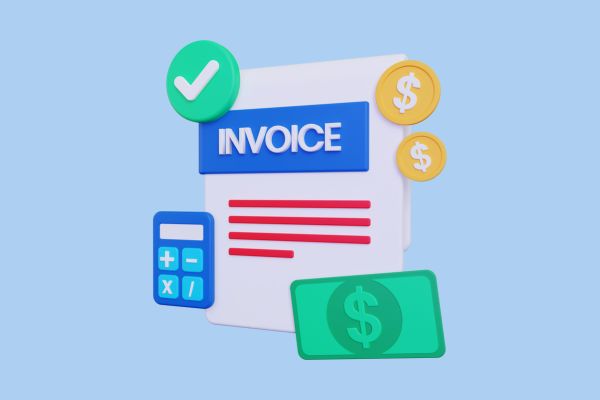Must the export invoice clearly state the foreign buyer's name to be eligible for input VAT deduction in Vietnam?
In light of the difficulties encountered during the application of e-invoices for on-the-spot exports, the General Department of Taxation (Hanoi Tax Department) issued Official Dispatch 17831/CTHN-TTHT 2023 guiding regulations on e-invoices according to Decree 123/2020/ND-CP.
Are on-the-spot exported goods eligible for input VAT deduction and refund in Vietnam?
Based on Clause 2, Article 17 of Circular 219/2013/TT-BTC stipulates as follows:
Conditions for input VAT deduction and refund for certain ostensibly exported goods
...
2. On-the-spot exported goods as prescribed by law:
a) Sales contract or processing contract indicating delivery within Vietnam;
b) Customs declaration for on-the-spot exported - imported goods completed with customs procedures;
c) VAT invoice or export invoice clearly stating the name of the foreign buyer, the name of the receiving enterprise, and the delivery location in Vietnam;
d) Goods sold to foreign traders but delivered within Vietnam must be paid via bank in freely convertible foreign currency. Bank payment documents should follow the guidance in Clause 3, Article 16 of this Circular. In case the on-the-spot importer is authorized by the foreign party to pay the on-the-spot exporter, the payment currency should comply with the foreign exchange laws.
đ) On-the-spot exported goods of foreign-invested enterprises must comply with the investment license provisions.
Therefore, on-the-spot exported goods are eligible for input VAT deduction and refund when the following conditions are met:
- Sales contract or processing contract indicating delivery within Vietnam.
- Customs declaration for on-the-spot exported - imported goods completed with customs procedures.
- VAT invoice or export invoice clearly stating the name of the foreign buyer, the name of the receiving enterprise, and the delivery location in Vietnam.
- Goods sold to foreign traders but delivered within Vietnam must be paid via bank in freely convertible foreign currency. Bank payment documents should follow the guidance in Clause 3, Article 16 of Circular 219/2013/TT-BTC.
In case the on-the-spot importer is authorized by the foreign party to pay the on-the-spot exporter, the payment currency should comply with the foreign exchange laws.
- On-the-spot exported goods of foreign-invested enterprises must comply with the investment license provisions.

Must the export invoice clearly state the foreign buyer's name to be eligible for input VAT deduction in Vietnam?
Must the export invoice clearly state the foreign buyer's name to be eligible for input VAT deduction in Vietnam?
Based on Point c, Clause 2, Article 17 of Circular 219/2013/TT-BTC stipulates as follows:
Conditions for input VAT deduction and refund for certain ostensibly exported goods
...
2. On-the-spot exported goods as prescribed by law:
...
c) VAT invoice or export invoice clearly stating the name of the foreign buyer, the name of the receiving enterprise, and the delivery location in Vietnam;
...
Thus, the company preparing the on-the-spot export invoice must clearly state the name of the foreign buyer, the name of the receiving enterprise, and the delivery location in Vietnam to be eligible for input VAT deduction and refund.
Handling of paper invoices with errors under the new e-invoice regulations in Vietnam
Regarding this issue, Official Dispatch 17831/CTHN-TTHT 2023 provides guidance as follows:
In case the company discovers errors on issued invoices and needs to prepare corrective or replacement invoices, the company should handle erroneous invoices according to Article 19 of Decree 123/2020/ND-CP and Clause 6, Article 12 of Circular 78/2021/TT-BTC.
Therefore, the handling of erroneous invoices should follow Article 19 of Decree 123/2020/ND-CP and Clause 6, Article 12 of Circular 78/2021/TT-BTC as follows:
- From the time businesses, organizations, households, and individuals use e-invoices as prescribed in Decree 123/2020/ND-CP and the regulations in Circular 78/2021/TT-BTC, if errors are discovered in invoices prepared according to Decree 51/2010/ND-CP, Decree 04/2014/ND-CP, and the Ministry of Finance’s guiding documents:
The seller and the buyer must prepare a written agreement detailing the errors, the seller must notify the tax authority using Form No. 04/SS-HDDT issued with Decree 123/2020/ND-CP and issue a new e-invoice (e-invoice with or without tax authority code) to replace the erroneous invoice.
- The replacement e-invoice must include the phrase "Replaces invoice Form No... symbol... number... date... month... year."
The seller signs the new e-invoice replacing the erroneous invoice (prepared according to Decree 51/2010/ND-CP, Decree 04/2014/ND-CP, and the Ministry of Finance's guiding documents) and sends it to the buyer (for e-invoices without tax authority code) or the seller submits it to the tax authority for coding (for e-invoices with tax authority code).
LawNet